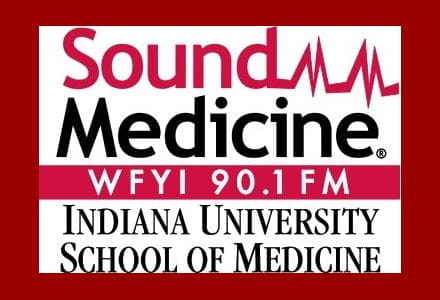INDIANAPOLIS — “Sound Medicine” announces its program for Nov. 3, with an educator’s perspective on the Affordable Care Act, a conversation about new technology that trains surgeons in cleft palate and lip repair, and a debate over the effectiveness of body-building supplements.
Is the Affordable Care Act accessible to all? The Affordable Care Act, which debuted Oct. 1, was supposed to provide consumers with a manageable system to explore and purchase health insurance. However, the health exchange marketplace website repeatedly crashed, and many users are still having problems logging in. Taylor Burke, J.D., an associate professor at the School of Public Health & Health Services at George Washington University, joins “Sound Medicine” for a conversation about the effects of the Affordable Care Act rollout and its unintended consequences.
Why is cartilage so important? As humans age, articular cartilage — the smooth white tissue that covers the ends of bones where they form joints — can become damaged. The damaged tissue cannot be repaired and can lead to chronic knee, hip and other joint pain. Stephen Trippel, M.D., a professor of orthopedic surgery at the Indiana University School of Medicine, is a cartilage growth and repair expert who joins “Sound Medicine” to discuss his research, the effects of damaged cartilage and why cartilage repair is so tricky.
Can cleft palate repair be taught online? Over 100,000 children in developing countries are born with cleft palates and lips, most of which will never be repaired due to lack of trained medical personnel. Roberto Flores, M.D., is the medical director of a groundbreaking technological resource that has the potential to train surgeons in developing countries to perform cleft palate and lip repair. Smile Train now hosts a free Web-based interactive surgery simulator that has been used successfully in over 48 countries and requires only basic software. Dr. Flores joins host Barbara Lewis to discuss the conception of Smile Train, the goals of the program and its success thus far.
Are combined hormonal contraceptives safe for all women? A recent study found that many women using combined hormonal contraceptives could be at risk for a plethora of health isues. Combined hormonal contraceptives are a type of birth control that contain both estrogen and progesterone to prevent pregnancy, commonly used in pills, patches and vaginal rings. “Sound Medicine” healthy living expert Theresa Rohr-Kirchgraber, M.D., discusses the dangers of combined hormonal contraceptives for women with certain risk factors. She suggests barrier methods or progesterone-only pills as alternative forms of contraception. Dr. Rohr-Kirchgraber is an associate professor of clinical medicine and pediatrics at the Indiana University School of Medicine; she sees patients at Wishard Hospital.
Are body-building supplements safe? There are hundreds of body-building supplements that promise the same things: increased energy, muscle growth and better overall health. However, body-building supplements are not regulated by the FDA and do not require clinical trials to prove safety and effectiveness. Michael Ormsbee, Ph.D., an assistant professor at the Institute of Sports Science and Medicine Human Performance Lab at Florida State University, discusses the safety of body-building supplements, how they work and getting the most out of your supplements.
“Sound Medicine” covers controversial ethics topics, breakthrough research studies and the day-to-day application of recent advancements in medicine. It’s also available via podcast and Stitcher Radio for mobile phones and iPads and posts updates on Facebook and Twitter.
Co-produced by the IU School of Medicine and WFYI Public Radio (90.1 FM) and underwritten in part by Indiana University-Purdue University Indianapolis, “Sound Medicine ” airs on the following Indiana public radio stations: WBSB (Anderson, 89.5 FM), WFIU (Bloomington, 103.7 FM; Columbus, 100.7 FM; Kokomo, 106.1 FM; Terre Haute, 95.1 FM), WNDY (Crawfordsville, 91.3 FM), WVPE (Elkhart/South Bend, 88.1 FM), WNIN (Evansville, 88.3 FM), WBOI (Fort Wayne, 89.1 FM), WFCI (Franklin, 89.5 FM), WBSH (Hagerstown/New Castle, 91.1 FM), WFYI (Indianapolis), WBSW (Marion, 90.9 FM), WBST (Muncie, 92.1 FM), WBSJ (Portland, 91.7 FM), WLPR (Lake County, 89.1 FM) and WBAA (West Lafayette, 101.3 FM).
“Sound Medicine” is also broadcast on these public radio stations across the country: KSKA (Anchorage, Alaska), KTNA (Talkeetna, Alaska), KUHB (Pribilof Islands, Alaska), KUAF (Fayetteville and Fort Smith, Ark.), KIDE (Hoopa Valley, Calif.), KRCC (Colorado Springs, Colo.), KEDM (Monroe, La.), WCMU (Mount Pleasant, Mich.), WCNY and WRVO-1 (Syracuse, N.Y.), KMHA (Four Bears, N.D.), WYSU (Youngstown, Ohio), KPOV (Bend, Ore.) and KEOS (College Station, Texas).
Please check local listings for broadcast dates and times.




